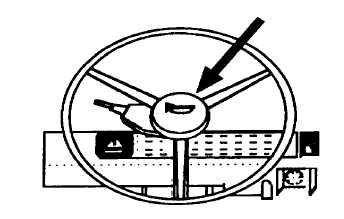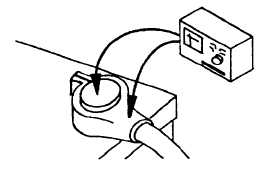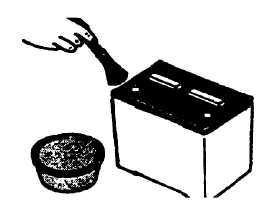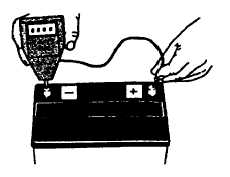| |
TM 10-3930-671-24
a)
Check the neutral start switch. Try moving
jiggling) the directional control lever in the
NEUTRAL position, or shifting into NEUTRAL
while turning the ignition key switch to the
START position. The key switch must be turned
back to the OFF position each time before
turning to the START position.
b)
Check the connections at the battery. They
should be free from corrosion and securely
tightened. If heat is felt at any of the
connections, this is an indication that a poor
connection exists.
To
be
safe
when
checking
or
removing battery connections for
cleaning,
first
disconnect
the
negative battery cable at the end
where it is attached to the engine or
frame ground connection. Then, try
to move (twist) the cable connectors
at the battery back and forth to be
sure that they are tight.
(1)
Perform a volt drop test on the battery post
terminal connections.
Refer
to
Starting
System
Electrical
Checks.
(2)
If the connections are tight but need
cleaning, remove the cables and clean the
battery posts and the inside of the cable
connectors, using a wire brush or a special
battery terminal cleaning tool to remove
the oxidation film. Also, remove any
contamination and sulfate deposits that
may have formed on the battery. Clean
the battery with a solution of baking soda
and water. Rinse with clean water. Be
careful not to get any cleaner or dirt in the
battery vent holes.
(3)
Reconnect the battery cables in reverse
order of removal, by connecting positive
(+) cable first, then negative (-) cable, and
attaching the negative cable to the engine
or frame ground last. This way, any spark
that is produced will be far from the
battery. Wipe the battery clean with a
cloth or paper towel.
(4)
Try starting the engine again.
(5)
If the starter still does not operate, check
the charge condition of the battery with a
hydrometer or digital voltmeter.
F-301
|







